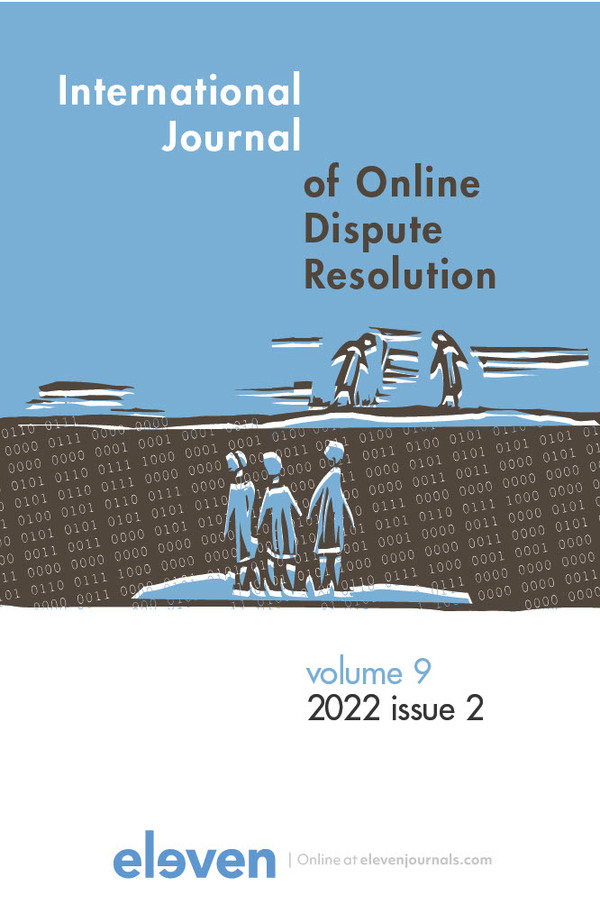|
Alternative Dispute Resolution (=ADR) is a generic reference to consensus-based processes that provide an alternative to litigation and to binding arbitration procedures. Analysing European provisions, the European legislator pushes Alternative Dispute Resolution methods as a means of resolving not only consumer-to-business disputes but also business-to-business. This may determine over the long term a sort of ‘dejurisdictionalization’ process, moving disputes from tribunals to Alternative Dispute Resolution methods. Procedural rights, however, such as raising interpretative questions to the European Court of Justice, may only be exercised before a court. |


International Journal of Online Dispute Resolution
About this journalSubscribe to the email alerts for this journal here to receive notifications when a new issue is at your disposal.
| Article |
|
| Keywords | European legislation, Alternative Dispute Resolution, civil procedure |
| Authors | Rebecca Berto |
| AbstractAuthor's information |
| Article |
|
| Keywords | Online Dispute Resolution, smart court, internet court, access to justice, China |
| Authors | Carrie Shu Shang and Wenli Guo |
| AbstractAuthor's information |
|
The use of online dispute resolution (ODR) in courts is a growing topic of interest. By focusing on the recent development of ODR-connected smart courts in China, this article explores ODR’s potential impact on Chinese legal systems from three aspects: role of courts and the legal profession, due process rights, and information safety. By focusing on changing dispute resolution theories – from emphasizing on conflict resolution to dispute prevention – the article argues that ODR-led court reforms rose to the centre because the reform caters to specific purposes of the recent series of reforms conducted under the auspices of the Rule of Law campaign, by prioritizing efficiency goals and attempting to enhance individualist justice experiences. In this article, we define the meaning of ODR in China and describe and categorize ODR technologies that are currently in use in China. Based on these general findings and promising technological options of ODR, we also recommend ways to better implement ODR in Chinese courts to take full advantage of technological advancements. |
| Article |
|
| Keywords | smart contracts, blockchain, arbitration, dispute resolution, contract law, distributed ledger technology, internet of things, cyber law, technology, innovation |
| Authors | Mangal Chauhan |
| AbstractAuthor's information |
|
This article explains the functioning of smart contracts and technology underlying blockchain. This contribution aims to compare smart contracts with traditional contracts and discuss their situation under the present contract law. It further discusses possible issues that may arise out of the application of smart contracts, for instance, coding errors and programming defects. It studies the possible application of smart contracts to specific fields, such as e-commerce and consumer transactions and possible disputes arising out of this application. It divides the smart contracts into categories based on their form and discusses legal issues in regard to their application. |
| Article |
|
| Keywords | paperless arbitration, arbitral practice and procedure, cybersecurity, new technology |
| Authors | William Brillat-Capello, Laura Canet, Gillian Carmichael Lemaire e.a. |
| AbstractAuthor's information |
|
A webinar organized by Laura Canet and William Brillat-Capello, with Gillian Carmichael Lemaire, Yulia Mullina, Sebastián Partida, Sarah Tulip, Sergey Alekhin as speakers |
| Book Review |
|
| Authors | Colin Rule |
| Author's information |

 Issue 2
Issue 2